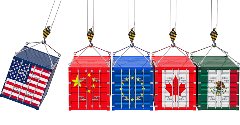News
Will ASEAN harmonise food marketing rules for children?
21 Jun 2024ASEAN Health Ministries and UNICEF release new guidelines on how food and beverage brands should market their products to children to protect them from harm.
Policymakers from the Association of Southeast Asian Nations (ASEAN) Health Ministries have proposed 12 recommendations for the region’s leaders on regulating food and beverage marketing directed at children.

ASEAN Health Ministries launched these marketing guidelines in its comprehensive report, ASEAN Minimum Standards and Guidelines on Actions to Protect Children from the Harmful Impact of Marketing of Food and Non-alcoholic Beverages. Released in collaboration with the United Nations International Children’s Emergency Fund (UNICEF), the World Health Organization (WHO), and Alive & Thrive (A&T), the guidelines aim to protect children from the harmful impact of unhealthy food and beverage marketing.
The 12 measures, which apply to the ASEAN Member States, strive to limit the influence of such marketing and create healthier environments for children across the region.
Putting an end to unhealthy marketing practices
Unhealthy eating choices are heavily promoted in Southeast Asia through widespread advertisements, resulting in a transition to highly processed and unhealthy diets rich in saturated fats, trans-fatty acids, free sugars and salt.
In the ASEAN region, more than 12 million children under the age of five are overweight or obese. Rates are rising each year, mainly due to the growing consumption of highly processed and unhealthy diets, the report says. Furthermore, children are exposed to extensive and persuasive marketing of unhealthy foods, which contributes to establishing social norms and increasing preferences for consuming these food types.
The WHO calls for enforceable restrictions on unhealthy food and beverage advertisements to children. Despite some progress, only a small number of countries in the ASEAN region have adequate measures in place to protect children from the marketing of unhealthy foods. “More work needs to be done,” the report’s authors say.
New ASEAN regulation recommendations
ASEAN Health Ministries and UNICEF have suggested a total of 12 minimum standards and guidelines for regulating food and beverage marketing in the region. Many of these relate to introducing legislation and managing its implementation and enforcement.
Firstly, the report highlights the importance of adopting a whole-systems approach to tackling the complex health issues of overweight and obesity. It says that unhealthy food marketing is one interdependent driver of unhealthy food norms, preferences, and consumption.
Adopting mandatory legislation is the report’s second recommendation. The report’s authors highlight the importance of regional cooperation. “One country alone cannot fully protect children from all unhealthy food marketing,” the report says.
Uniform implementation, monitoring, evaluation, and enforcement provisions are crucial to ensure clarity and minimise ambiguity for food and beverage companies. Regional cooperation in agreements on minimum standards can help protect children from the harmful impacts of food marketing. Harmonisation at the regional level can also strengthen calls to impose national-level restrictions under international trade law.
Comprehensive legislation is another crucial proposal of the report. Taking lessons from tobacco regulation, the report’s authors say that incorporating all necessary aspects of a comprehensive approach to combat unhealthy food and beverage marketing will be the most effective strategy to safeguard children from such marketing.
Integrating legislative and regulatory elements in a single law provides a cohesive approach. Introducing separate laws for various media or settings over time could lead to fragmentation and the risk of industries diverting marketing expenditures from regulated to unregulated media to maintain sales levels.
The report highlights the need to ensure governance systems steer the legislative process surrounding the sector’s marketing policies and that these are monitored and evaluated for compliance and effectiveness.
Immediate and future goals
Setting clear and measurable short-term, medium-term, and long-term policy objectives is essential to creating effective policies. These goals must outline the policy’s intended outcomes and be backed by evidence of the effects of promoting unhealthy foods on children’s health.
In the short term, lawmakers can reduce children’s exposure to food and non-alcoholic beverage marketing and limit the persuasive nature of these messages. In the medium term, efforts can focus on decreasing unhealthy food and drink purchases and consumption. In the long term, legislation is important to lower the overall number of overweight and obese children in the population, the report says.
Existing regulations on unhealthy food restrictions
In ASEAN’s current regulatory environment, some nations have restricted unhealthy food marketing to children. To date, six ASEAN Member States—Singapore, Thailand, Vietnam, Malaysia, Brunei, and the Philippines—have taken steps to change how food and beverage brands market to children in their respective countries.
Governments often choose voluntary industry-led food marketing codes instead, even though evidence suggests that government-led mandatory action is more effective in reducing children’s exposure to unhealthy food marketing whereas industry-led codes are usually ineffective.
While some progress has been made in regulating marketing practices, a comprehensive approach with binding legal measures is yet to be adopted by any ASEAN Government.
Related news

Future F&B flavours favour exploration and explosive taste profiles
25 Mar 2025
Exploration and experimentation will define the future of flavour, according to Mintel, as consumers seek out taste profiles and textures that offer an adventurous eating experience.
Read more
Partnership plans to scale cultivated meat production
21 Mar 2025
Food technology innovator Ever After Foods (EAF) and multinational food leader Bühler are striving to overcome hurdles to access and accelerate the development of cultivated meat.
Read more
Global consumers enjoy food less and perceive it as less healthy
20 Mar 2025
Enjoyment of food and its perceived healthiness is dwindling among most global populations, according to findings from Gallup and Ando Foundation/Nissin Food Products.
Read more
Seafood set to ‘dethrone’ poultry as protein growth king
19 Mar 2025
Seafood is poised to surpass poultry as the leading contributor to global protein supply growth this year, according to Rabobank’s latest protein outlook.
Read more
Tariff volatility leaves food manufacturers in limbo
11 Mar 2025
Rapid US trade policy shifts and tariff escalations are creating uncertainty for food manufacturers and ingredient suppliers.
Read more
F&B industry hit with fresh greenwashing claims
26 Feb 2025
The food and beverage (F&B) industry is under fresh scrutiny amid claims of greenwashing, with Arla the latest company in the firing line.
Read more
Protein diversification: A massive missed market?
20 Feb 2025
Germany and the UK could be missing out on the massive market for alternative meats and proteins, with one new coalition calling for an end to the “steak-tofu struggle”.
Read more
Have scientists discovered a new tool to measure UPFs?
19 Feb 2025
Researchers have developed a new scoring system and database, compiling over 50,000 food items, of which over 1,000 are classified as ultra-processed.
Read more
China ramps up cultivated meat research with new innovation base
18 Feb 2025
China has opened its first fermentation and cultivated meat research centre in Beijing.
Read more
Most consumers lack trust in AI, but supplement users are ready to embrace the technology
14 Feb 2025
A survey of UK and US consumers found that most supplement users are willing to let AI make decisions on their behalf, but they also demand greater transparency.
Read more